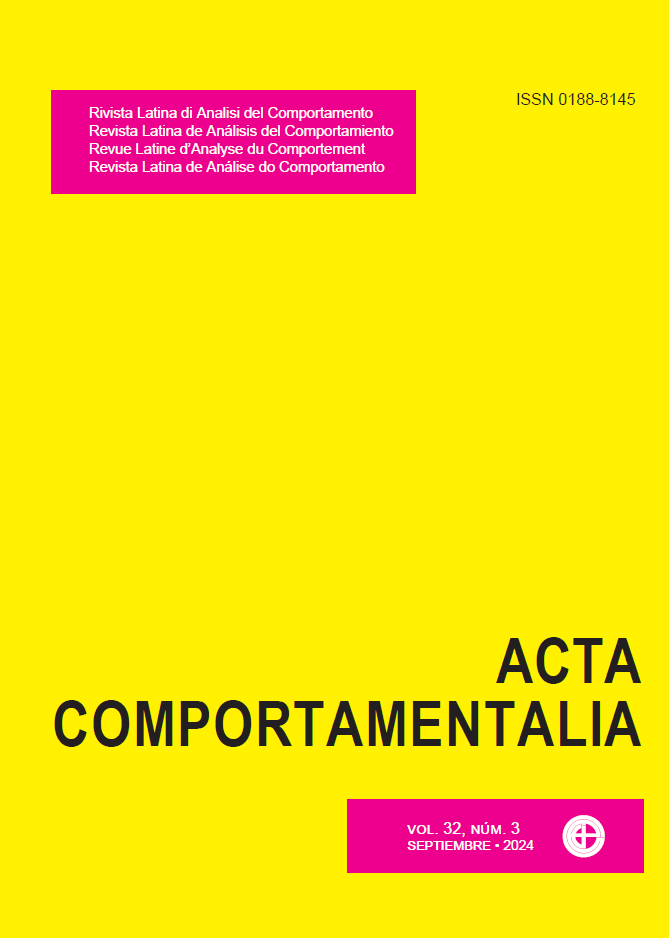Relevance of the Verbal Interference Paradigm for Emotional Measurement in Psychology
DOI:
https://doi.org/10.32870/ac.v32i3.88364Keywords:
Attention, cognitive bias, emotion, clinical psychology, Stroop paradigm, variants, applicationsAbstract
The Stroop task stands as a vital instrument in psychological and clinical research, as it delves into areas often difficult to reach using mere questionnaire-based approaches. Its essence lies in measuring the interference of color stimuli when reading words, and it became a way to examine the resolution of interference and selective attention. The proficiency required by the Stroop task allows us to focus on specific environmental cues while mitigating distractions that could thwart our goals. Performing the task competently requires engaging cognitive control, which involves regulating our thoughts and actions in alignment with our overall goals. It is postulated that they require two distinct word recognition processes within the Stroop paradigm. The initial phase that involves automatic lexical access, followed by an optional stage of strategic allocation of limited cognitive resources that allows choosing the response to be issued. The emotional interference of the Stroop task emerges as particularly sensitive to individual variations in the emotional weight of words, particularly within clinical contexts. The manifestation of interference effects in threat-related Stroop words provides insights into the automaticity of emotional processing and its interaction with cognitive control mechanisms. This article delves into the multifaceted applications of the Stroop paradigm, highlighting its usefulness in emotional, clinical, and experimental domains. The versatility of this paradigm has been fundamental to investigate disorders such as generalized anxiety, depression, or certain phobias, offering a nuanced perspective of the emotional panorama of individuals. It is proposed that this emotional Stroop paradigm serves as a revealing lens through which cognitive and emotional biases in mental health can be revealed, shedding light on the sources of trauma, psychiatric disorders, and treatment adherence. In addition, it allows us to address topics such as individual beliefs, preferences, and emotional responses on sensitive topics such as gender and religion, offering deep insights into social attitudes and stereotypes. By adapting word selection to match specific pathologies, immediate concerns, prejudices, topics of interest, words related to culture shock, among other modifications, the Stroop emotional paradigm facilitates accurate diagnostic evaluations. Furthermore, due to its non-intrusive nature, it becomes an objective diagnostic tool, free of possible biases derived from interpersonal dynamics.
Downloads
Downloads
Published
How to Cite
Issue
Section
License

<a rel="license" href="http://creativecommons.org/licenses/by-nc-sa/4.0/"><img alt="Licencia de Creative Commons" style="border-width:0" src="https://i.creativecommons.org/l/by-nc-sa/4.0/88x31.png" /></a><br />Este obra está bajo una <a rel="license" href="http://creativecommons.org/licenses/by-nc-sa/4.0/">licencia de Creative Commons Reconocimiento-NoComercial-CompartirIgual 4.0 Internacional</a>.






